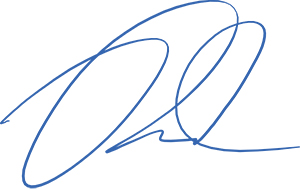


For decades, science fiction writers and skilled marketers have been promising the panacea of a technically enhanced future, a carefree lifestyle in which we are relieved from the drudgery of routine tasks and the burdens of daily life. These well-intended visions of the future were partially correct. However, the prognosticators of the future neglected to acknowledge an important aspect of technical progression and human experience: the future of responsibility.
In the 1960s, the television show Lost in Space imagined a clothes dryer that delivered its final product wrinkle-free, folded and ready-to-wear. It did not conceive how human interaction would be transformed by individual opinions and events, large and small, broadcast to a global audience via a post or tweet. Likewise, Star Trek envisioned the ultimate video game, a Holodeck, never considering the addictive lure of virtual reality, or that treatment programs would be a byproduct of far less sophisticated offerings.
It has been said that with great power comes great responsibility. Technology bestows great power and, accordingly, great responsibility. What once took the efforts of a team, if not an entire institution, can now be done by an individual. A single person possesses the power of many, and, therefore, their combined responsibility.
To validate this point, one need look no further than social media. Today, there are individuals with reach and sway that rival large media companies. Thus, I would argue, they have equal responsibility to consider the impact and consequences of their actions. The challenge is that these individuals are not constrained by corporate policies and organizational structure, and there is no review or filter to their commentary beyond their own self-discipline, common sense and personal ethics. Their decisions are theirs alone, with only their audience to hold them accountable.
It is a mistake to think that this increase in responsibility belongs solely to the famous and the powerful. If you doubt this observation, consider the number of unsuspecting people who have been thrust into the limelight as a result of a simple tweet. Or The Atlantic’s recent article, Dear Parents: The Internet Never Forgets, examining the ethics of creating a digital footprint for a child. Soon, families will have the equivalent of digital DNA.
The benefits of technical advancement are undeniable; however, we must also acknowledge that power and responsibility are conjoined twins. Thus, just as technology empowers the individual, it also confers the accountability of leadership. By expanding our capabilities, technical advancement magnifies the consequences of our decisions and actions.
To paraphrase author Ori Brafman, today everyone’s opinions and actions have a “digital echo” that reverberates far beyond their perceived sphere of influence. We must concede that the gap between public persona and personal character is quickly disappearing and that our response to technical change cannot be passive.
We have the power and authority. The world is our audience, the Internet echoes and we are responsible.

